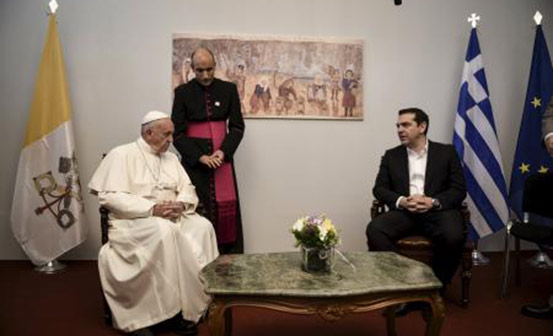×
The Standard e-Paper
Stay Informed, Even Offline

Pope Francis arrived on the Greek island of Lesbos on Saturday, turning the world's attention to the frontline of Europe's migrant crisis which has claimed hundreds of lives in the past year.
Francis, leader of the world's 1.2 billion Roman Catholics, was scheduled to spend about six hours on the small Aegean island. Based on his schedule, he was to meet 250 refugees and have lunch with eight of them.